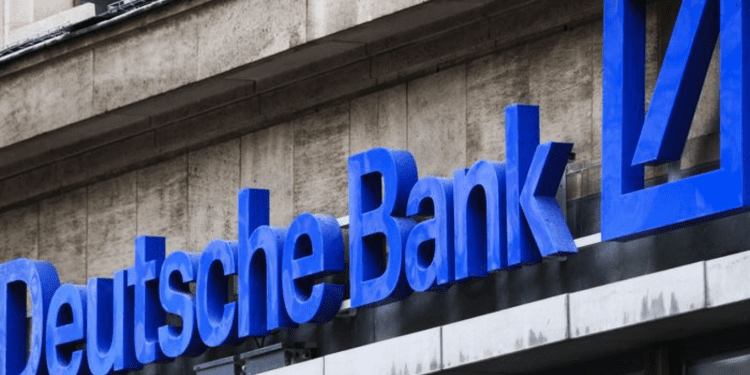At the 26th annual dbAccess German Swiss Austrian Conference, Deutsche Bank AG, Germany’s largest bank, announced that it has applied with the Federal Financial Supervisory Authority (BaFin) of Germany for a license to offer custodial services for digital assets.
This move is part of the bank’s broader strategy to increase fee income for its Corporate Bank. It also aligns with the bank’s efforts to generate revenue through digital asset-related offerings for its investment arm, DWS Group.
This is not Deutsche Bank’s first venture into digital asset custodial solutions. The bank made a similar attempt in 2020, but the launch timeline for these services remains unspecified.
The timing of Deutsche Bank’s move is strategic, considering the increasing participation of institutional players in the crypto space.
Institutional Trends
As major players like BlackRock and Fidelity express their intentions to enter the crypto market, the demand for regulated custodial service providers is expected to surge. Deutsche Bank aims to cater to this growing demand by positioning itself as a custodial services provider.
Deutsche Bank decided to explore crypto custodial services after the bank faced a liquidity crisis earlier this year during the Credit Suisse fallout. In parallel with Deutsche Bank’s efforts, German regulators have been working to ease crypto staking and lending rules. Additionally, regulatory developments, such as the MiCA framework, are expected to bring further clarity to the crypto landscape.
The adoption of cryptocurrencies among German citizens has been steadily increasing and is likely to rise further with improved regulatory clarity.
Several institutions in the broader financial industry have been expanding their services by integrating crypto products. Deutsche Bank joins this trend, seeking to enhance its fee income through digital asset custody. Notable players like the Bank of New York Mellon and BNP Paribas already offer crypto safekeeping services.
Ripple’s acquisition of Swiss custody firm Metaco and Standard Chartered’s fundraising for Zodia Custody are further indications of the growing importance of crypto custody.
Conclusion
Deutsche Bank’s recent application for a digital asset license from Germany’s securities watchdog, BaFin, demonstrates its commitment to developing its digital assets and custody business.
By entering the crypto custodial space, Deutsche Bank aims to position itself as a credible and trusted player, opening the door for greater institutional participation in the digital asset ecosystem. Despite regulatory challenges, the bank’s move signals its recognition of cryptocurrencies’ long-term potential and significance in the financial landscape.














